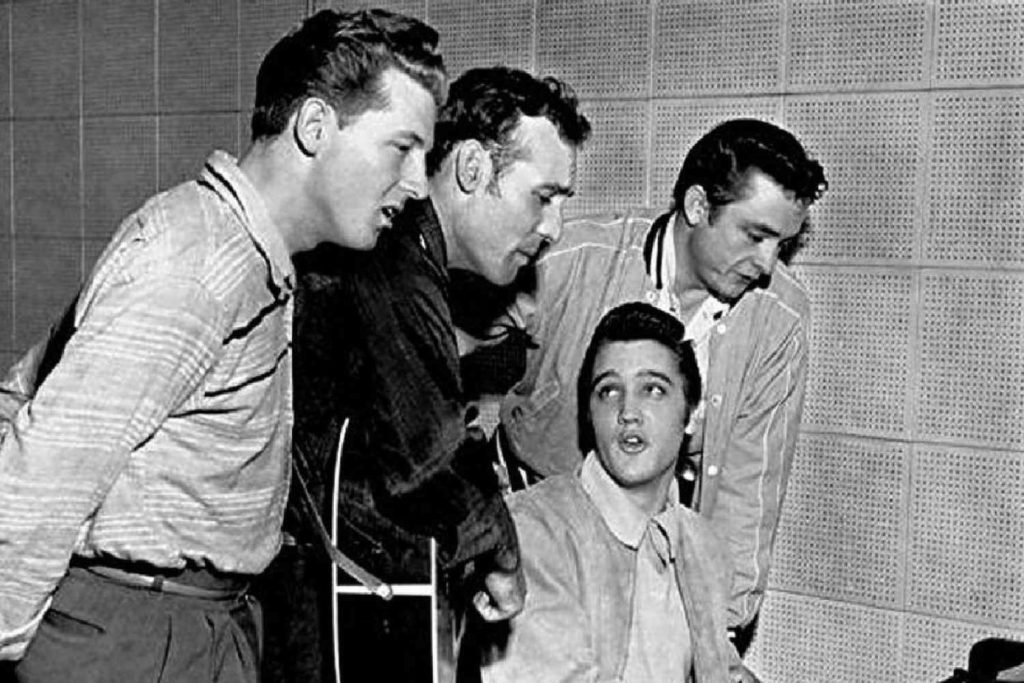Forget “Smells Like Teen Spirit” and “Come as You Are” - Kurt Cobain’s home demos have a lot more to say for one of the greatest grunge bands the world has seen.
The group was formed in 1986 and featured Kurt Cobain on lead guitar and vocals, Krist Novoselic on bass guitar, and various different drummers. The band’s first album, Bleach, was released in 1989 and included some well-liked tracks like “Floyd the Barber” and “About a Girl”, which landed Nirvana their first U.S. tour, as well as their first international concert in Newcastle, England.
Kurt Cobain’s musical success had begun in his twenties and was heightened by his forming of the band Nirvana, pushing both him and his grunge group to become household names, with famous hits like “Smells Like Teen Spirit”, “Come As You Are”, “In Bloom” and “Heart Shaped Box” achieving the group international success in their time and for long after.
In 1991, Dave Grohl joined the group as their permanent drummer and the rough-and-ready group released their second album, Nevermind which catapulted the band into global success in Saturday Night Live appearances and MTV performances. The success of the band proved intimidating to Cobain, who was dominantly shy and preferred the intimate settings of nightclubs and small bandrooms.
Read all the latest features, columns and more here.
Montage of Heck: The Home Recordings
Cobain’s life proved a rollercoaster, with fame and glory pushing the young grunge singer to use a variety of hard drugs such as morphine and heroin in the early nineties, but his shyness and child-like innocence as a talented muso lives on in the home demos he made over the years prior to his untimely death in 1994, released in 2015 as Montage of Heck: The Home Recordings.
The compilation album was released as a standard 13-track CD, a 31-track deluxe album and an audio cassette tape on November 13 2015 and served as the soundtrack to Brett Morgen’s documentary Kurt Cobain: Montage of Heck. With Cobain exploring his musical talent from an early age, he got his first guitar at the age of 15, a Sears electric guitar, and he spent most of his time learning how to play it.
Kurt’s Aunt Mari had a lot to do with the young up-and-coming muso’s exploration of recording home demos, encouraging him to use a Teac 4-track reel-to-reel recorder to tape his sounds whenever he was staying with her. Recording several home demos on the device as a teenager, one track, “Fecal Matter”, included Dale Crover from The Melvins, the band of which Kurt assisted as a roadie for some time.
Later recordings which appear on the compilation album range from “The Yodel Song” to early versions of fan favourites like “Frances Farmer Will Have Her Revenge on Seattle” and “Something in the Way”, with the rusty tracks serving as an epic exploration of Kurt’s ever growing talent as a multi-instrumentalist and the founder of one of the most legendary grunge rock bands of all time. Without a studio or high-end recording equipment, Cobain proved himself a musical legend out of the comfort of his own home, never taking himself too seriously.
Kurt Cobain influences
Kurt’s inspirations in Iggy Pop, Sonic Youth, and the Sex Pistols shine through in the sounds of his home recordings, with the rough sounding demos best described as everything grunge at heart, and the young muso pioneering a sound which would go on to serve as the soundtrack to a generation of kids growing up in the eighties and nineties.
Perhaps the best of Kurt’s home demos off the Montage of Heck compilation is the rough and short copy of “Been a Son”, which perfectly captures Kurt’s rawness as a songwriter, singer and guitarist. His strumming and picking of the unplugged electric guitar is twangy and almost sounds country, providing the perfect backing to his soft and low vocals sung quietly, as if someone is sleeping in the next room.
The verse repeats for a little while, before Kurt switches instruments in a cut as he performs the ‘bass part’, as introduced by him to his recording device. The track is raw-sounding and a little lazily crafted, perfectly encapsulating Kurt’s shy but explorative energy as an artist.
Sliver: The Best of the Box
Nirvana undoubtedly changed the course of popular music for good and remains an inspiration to all those who followed their legacy, with the band’s success being further ignited in November 2004 by the release of the three CD + DVD box set With the Lights Out, a definitive collection of Nirvana rarities and outtakes. In an effort to further offer fans a glimpse into the makings and audio highlights of With the Lights Out, the one CD release of Sliver: The Best of the Box was compiled of 18 selections from the box and adding three previously unreleased tracks.
Sliver: The Best of the Box contains some of the best behind the scenes audio demos of Nirvana’s greatest tracks; a demo version of “Heart Shaped Box” sounds almost as good as the studio release and an acoustic demo of “You Know You’re Right” features amazing vocals by Kurt Cobain and builds just as much tension as the release on “Nirvana”, the band’s greatest hits album.
The compilation album goes even further, featuring a great-sounding live instrumental cover of Led Zeppelin’s “Heartbreaker”, further cementing Nirvana as a wide-ranged and talented band long after their close as a group years prior to the album’s release.
Nirvana’s success ultimately took the music world by storm, with Kurt Cobain’s legacy as both a raw and honest artist as well as a spokesperson and symbol for Generation X and its tortured angst undoubtedly living on for generations to come. Rooted in an indie aesthetic, the Nirvana stars fought their stardom and success whilst also courting it, landing Kurt, Krist and Dave as three of the most notorious anti-rock stars in history. The home demos and raw recordings serve as a testament to Kurt and the band’s dedication to raw music as well as their unity as a grunge rock group. Certainly nothing will ever be quite the same after Nirvana.







